Since my last visit, Ikoyi has moved premises to the east end of The Strand. The décor has a similar feel, with plain wooden tables, an open kitchen and tiled floor. Dinner is tasting menu only, now priced at £300, or £180 at lunch. Head chef Jeremy Chan is still running the kitchen at the new location, and you can read more about his unusual background in my prior review. I wrote about the wine list also in my previous review; corkage here is £50 a bottle as an alternative.
The meal began with broth of caramelised chicken wings and clams, infused overnight and finished with lemon balm and Gola peppercorn oil from Sierra Leone. This was nicely judged, the lemon balm providing a touch of acidity and the peppercorns having a pleasant gentle bite of spice (15/20). This was followed by poppy seed tartlet with 5-month aged Angus sirloin beef smoked over charcoal, baked sweet potato, garlic capers, sweet potato, leaves of black mint, farmed trout that had been killed using the ikejime method to maximise its flavour, the dish completed by ponzu and chilli emulsion. This worked very well, the combination of meat and fish an unusual and effective pairing, the dressing providing sufficient acidity and spicy bite for balance, the sweet potato a contrasting texture. The tartlet pastry was very delicate (17/20).
This was followed by smoked potato and dulse seaweed tart, cassava spiced with vadouvan (a mild French spice mix with garlic and shallots), Orkney scallop, yeasted cauliflower, leaves of karashina (a kind of Japanese mustard) and pea shoots (16/20). Again, the pastry was delicate, the scallop had good natural sweetness and was balanced nicely by the earthiness of the cauliflower and the touch of spice (17/20).
Drunken chicken toast used chicken from Arnaud Tauzin, a Landes poultry supplier that has been operating since the 19th century. Mousse of the breast was filled with confit chicken leg and blanched skin, then rolled into a sausage that was steamed and soaked in vin jaune and spices. This was served with roasted quinoa on toast flavoured with chicken fat butter, with a jelly of master stock and vin jaune as well as and aioli and turnip tops. The dish was finished with a garnish of Japanese bunching onion. This dish had an almost Chinese flavour profile with the onion and the slightly gelatinous texture of the chicken, the poultry having good flavour and the turnip tops and onion bringing balance (17/20).
Next was pure-bred kaluga caviar with a creme caramel of saffron and Shetland mussels, with razor clams poached in mushroom oil, smoked fish broth and saffron and Bieber chilli oil. The crème caramel had good texture and the caviar itself was excellent (16/20). Lobster was grilled a la minute with and chicken wing reduction, heritage peas, fermented pork jowl and young garlic. The shellfish was tender and the meat provided plenty of flavour to lift the delicate lobster (16/20).
Moin moin is a steamed pudding popular in Nigeria and Benin. The version here was stuffed with beer braised maitake mushrooms, along with a salad of lobster, white kombu, hay butter, fig leaf and crispy seaweed. This was pleasant enough, but unlike most of the other dishes today, which had plenty of flavour often enhanced with spice, this dish came across as a little bland, though the salad element worked well. I wonder whether this would work better with a wild mushroom rather than the rather bland maitake (15/20).
Next was a tartlet of turbot brandade, ragu of red shrimp and wild mushrooms, and yeasted bearnaise. This dish had a hint of peppery bite that worked very well with the high-quality shellfish elements (17/20). This was followed by wild Cornish turbot that had been grilled a la minute and served with crab butter, brown crab emulsion, late winter squash, pumpkinseed miso and summer beans, the dish also being seasoned with dried N25 caviar, a plantain glaze and pistachio. This dish did not appear to have the spicy element that many others had, and yet for me the mild taste of turbot might have benefitted from it in this case. The turbot was carefully cooked suffered a little from being almost cold when it appeared, despite the kitchen being literally a few yards from our table, while the late winter squash didn’t add a great deal for me (15/20).
The final savoury course was native breed beef rib from the supplier Philip Warren in Cornwall, the beef aged 3-5 months and cooked in foaming butter and finished over an oak charcoal grill with onion caramel. This came with a sauce of curried courgette, tomato agrodolce condiment, green goddess salad dressing and a garnish of komatsuna (an Asian wild turnip) and rye porridge stuffed courgette. The beef had deep flavour and was nicely balanced by the greenery (17/20). Alongside was the restaurant signature dish of Jollof rice, the west African spicy rice dish that has many variations. Here the smoked rice was cooked in a barbecue broth with lobster velouté custard and new season Scottish girolles. This was particularly good, the girolles had lovely flavour, contrasting with the maitake earlier (17/20).
An initial dessert was Nepalese Timur pepper sorbet with champagne jelly, hung yoghurt and roses marinated in strawberry consommé. This was a refreshing and effective pre-dessert, the strawberries working well with the bite of the pepper (16/20). This was followed by overripe plantain, rum, raisin and brown butter ice cream, caramelised milk and N25 schrenkii caviar from Yunnan, finished with fresh pressed cashew. This sounded like an odd combination but actually worked better than I expected, the inherent saltiness from the caviar combining well with the rum and raisin (16/20).
Petit fours comprised green strawberry jelly with verbena berries, shiso and rhubarb and English wasabi with sansho leaves. There was also a choux bun of cep mushrooms with cream of Batak berries with fermented pine cone, as well as a chocolate truffle with suya ganache and candied hazelnut. Finally, there was a benne seed (a heritage variety of sesame) miso cookie with strawberry jam garnished with Australian black truffle. Coffee was the excellent Jamaican Blue Mountain from Difference Coffee (priced at £12).
Service was excellent and the dishes arrived at a steady, measured pace. The bill came to £209 in total including corkage and a glass of red wine. If you went in the evening and shared a bottle of modestly priced wine then a typical cost per person might be £370 or more. Ikoyi serves some of the most interesting food in London, a marriage of French technique, high quality ingredients and African spices. The technical skill on display is high and the usage of spicing has become more refined since opening. At one time the spicing could verge wildly being bland and bold, but now the spice levels felt well controlled throughout. As ever with a long tasting menu, some dishes work better than others, but the best ones were very good indeed.
Further reviews: 01st Apr 2022 | 09th Mar 2018

































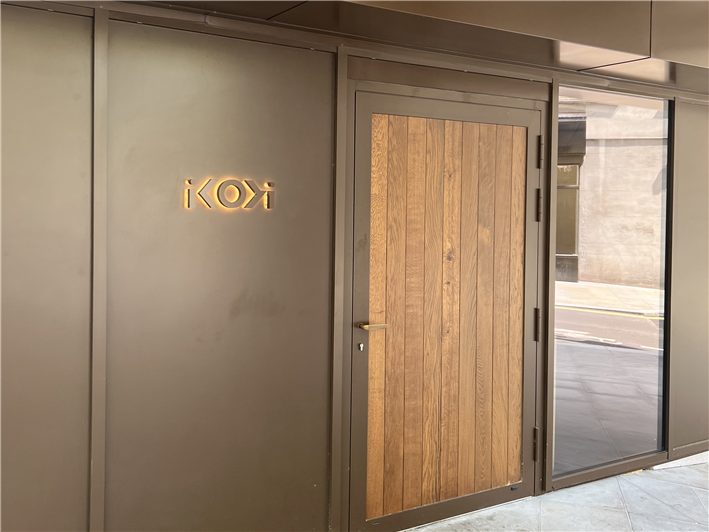

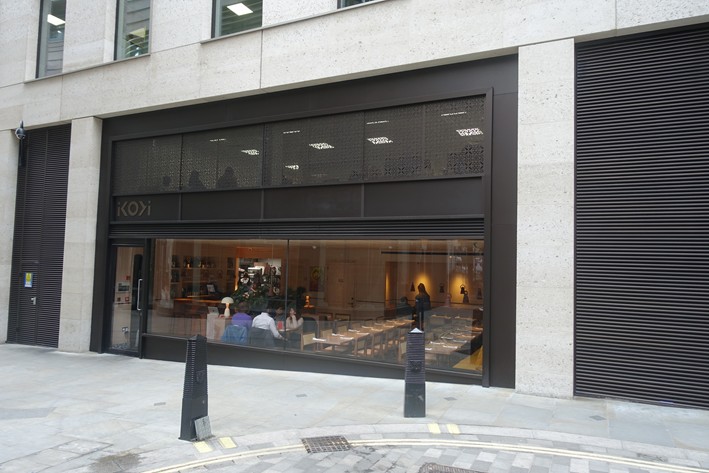
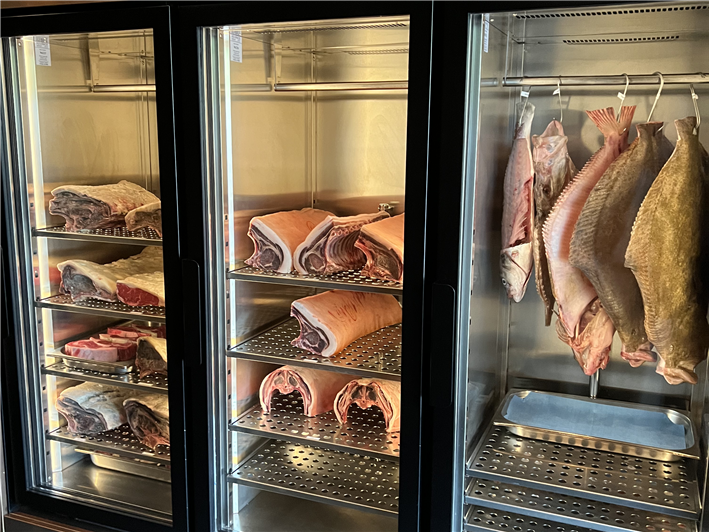
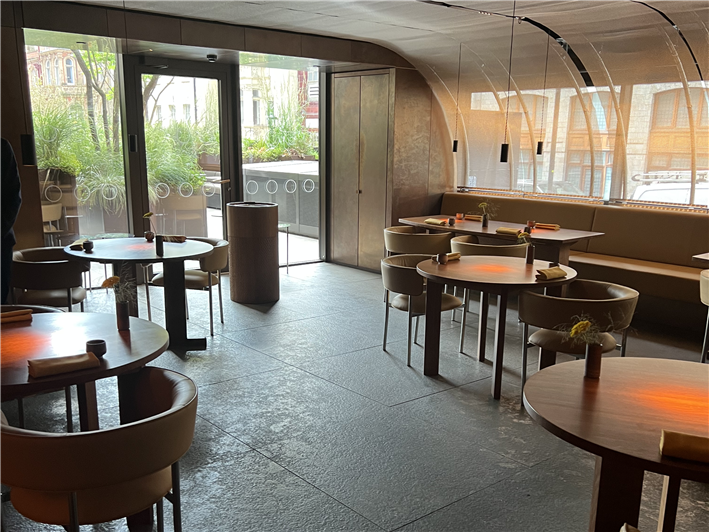
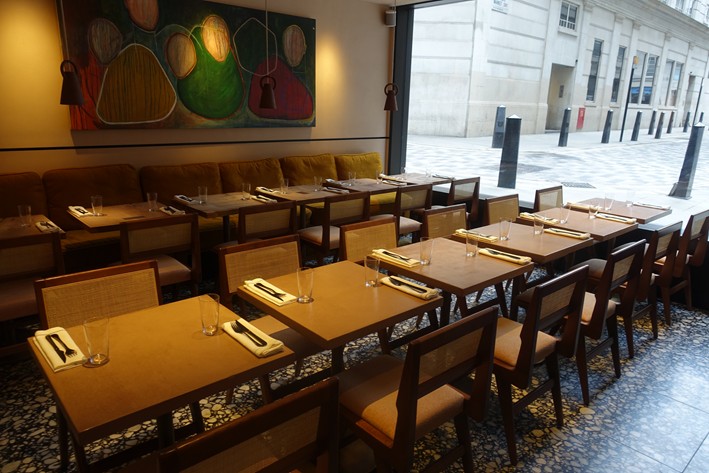
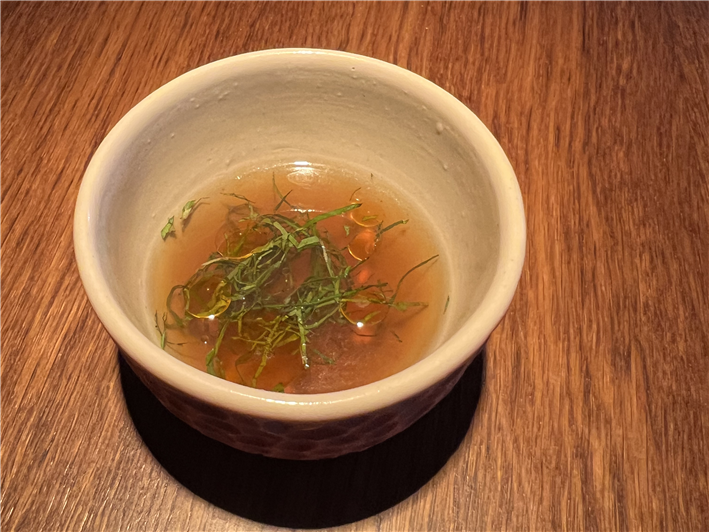
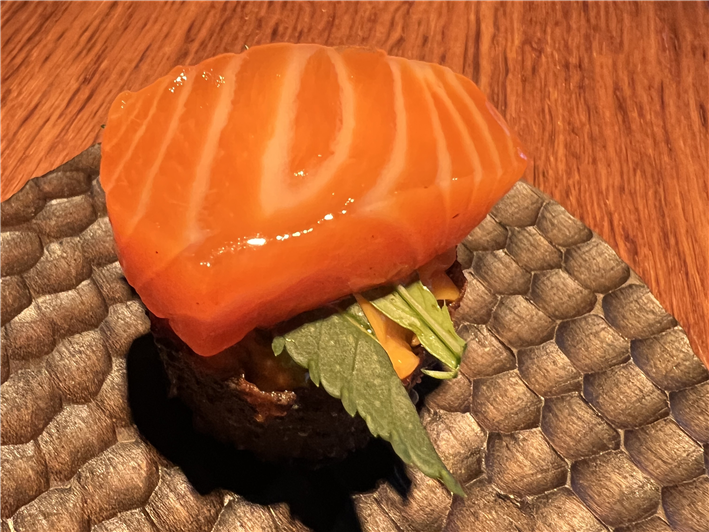
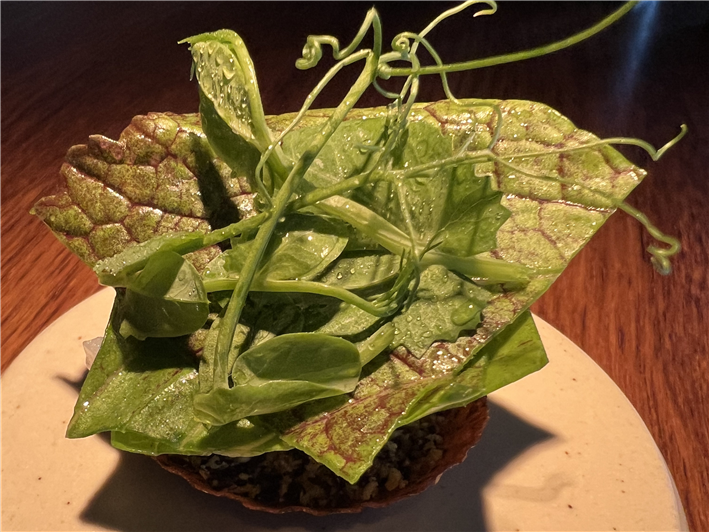
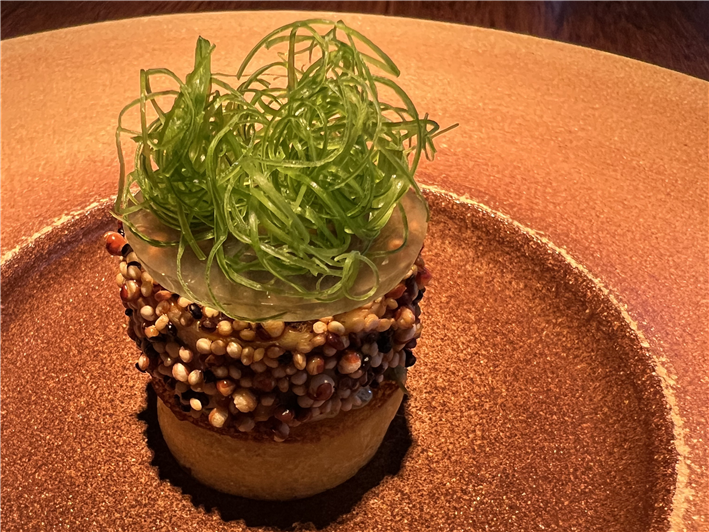
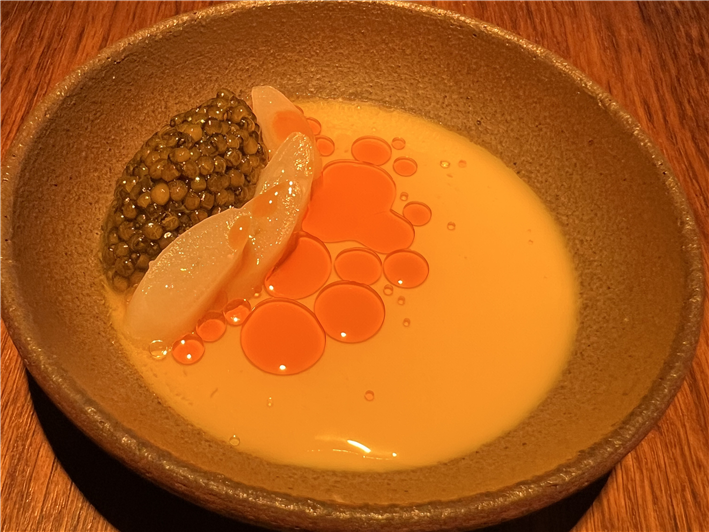
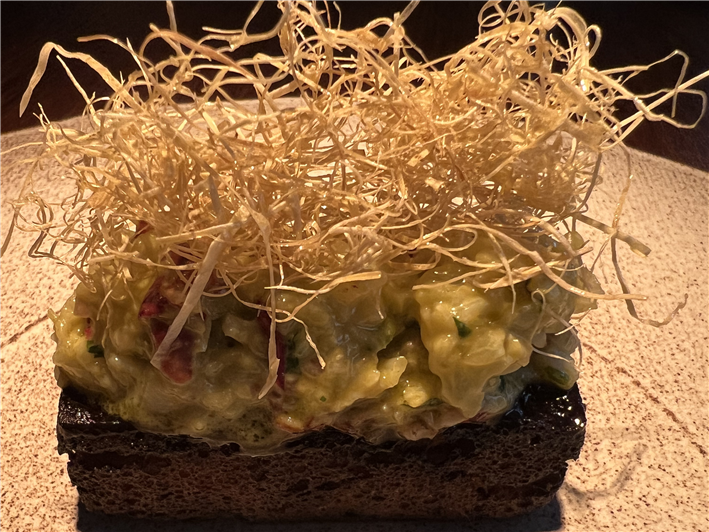
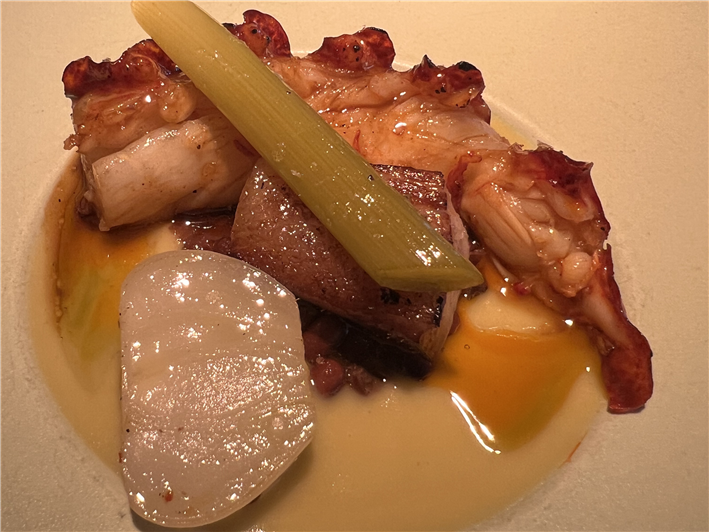
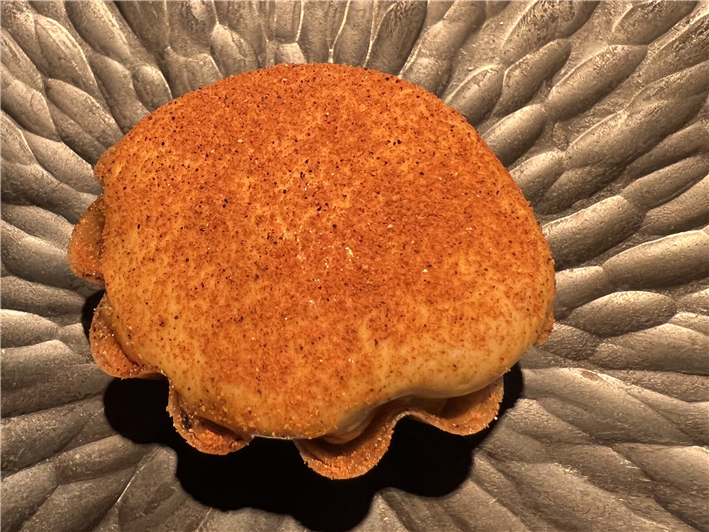
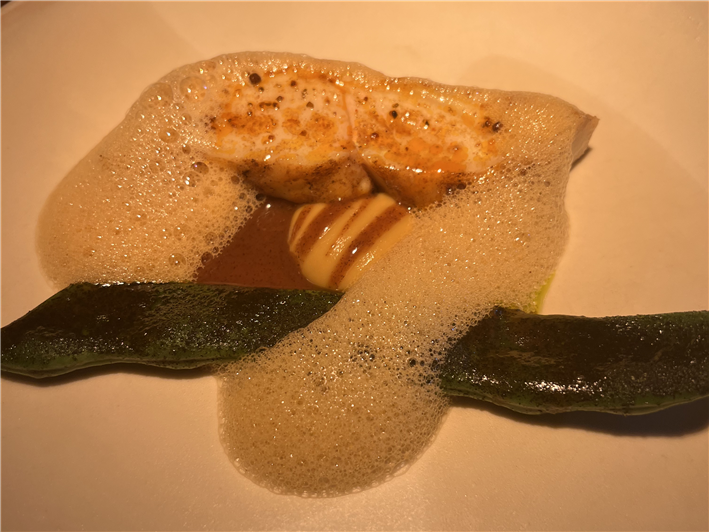
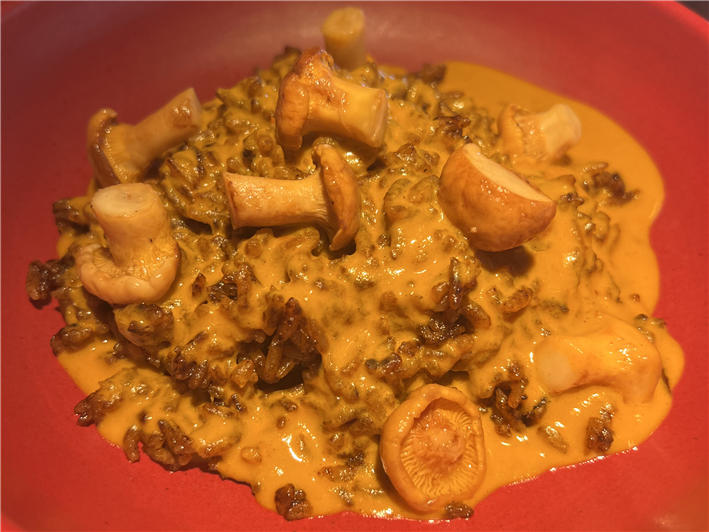
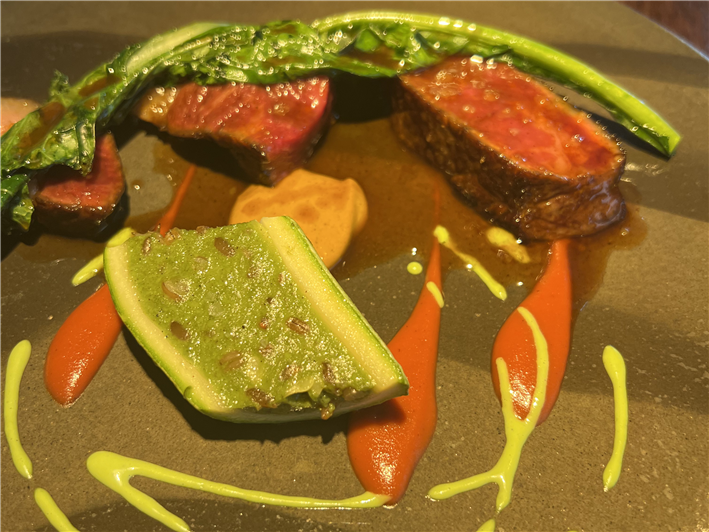
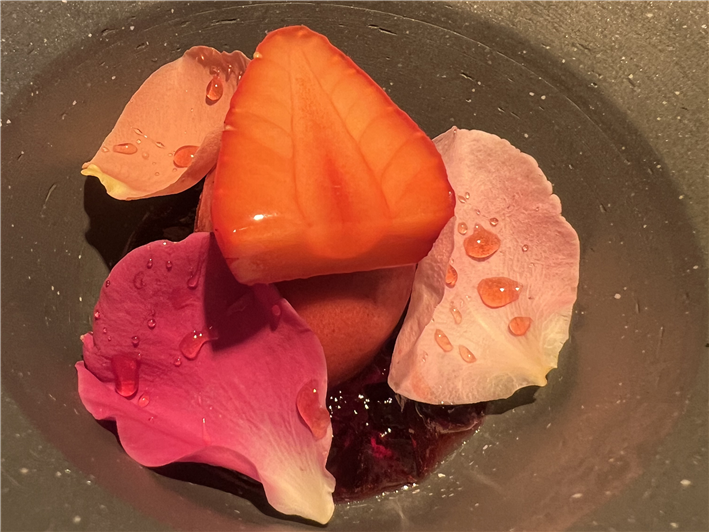
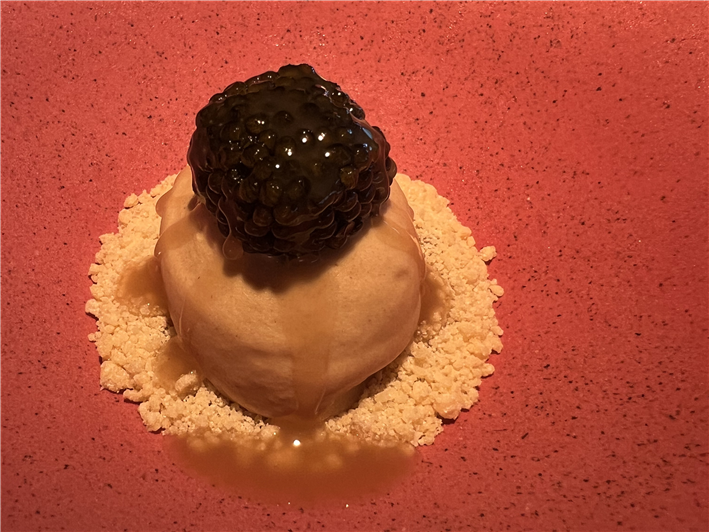
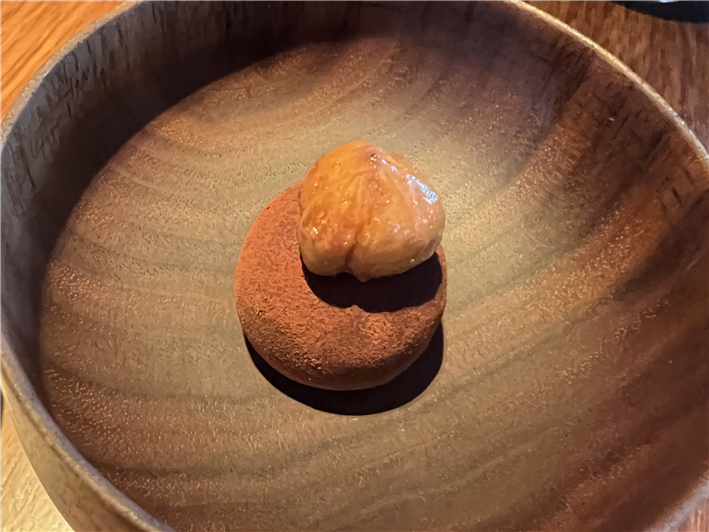
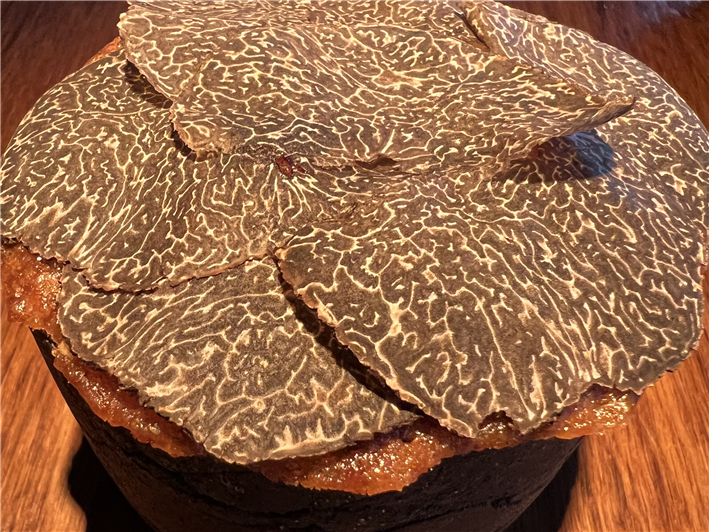
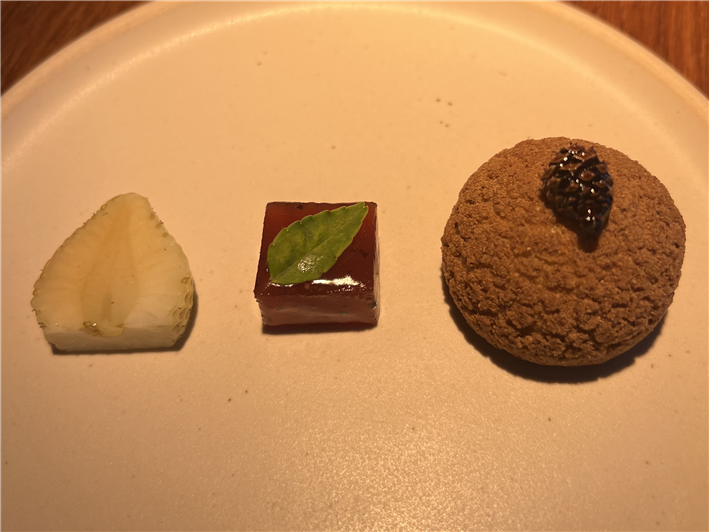
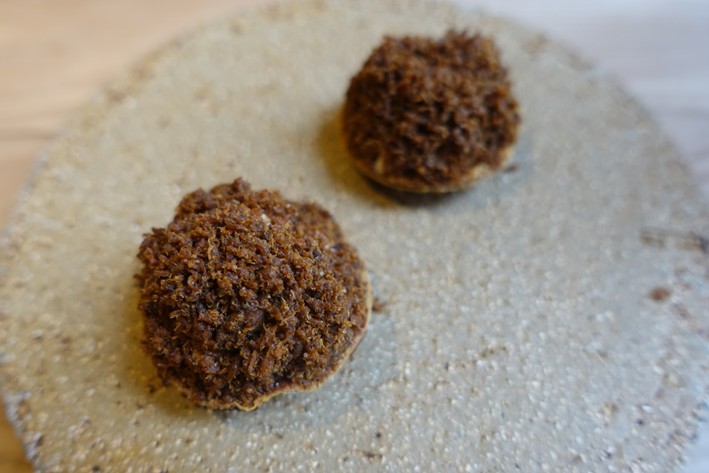
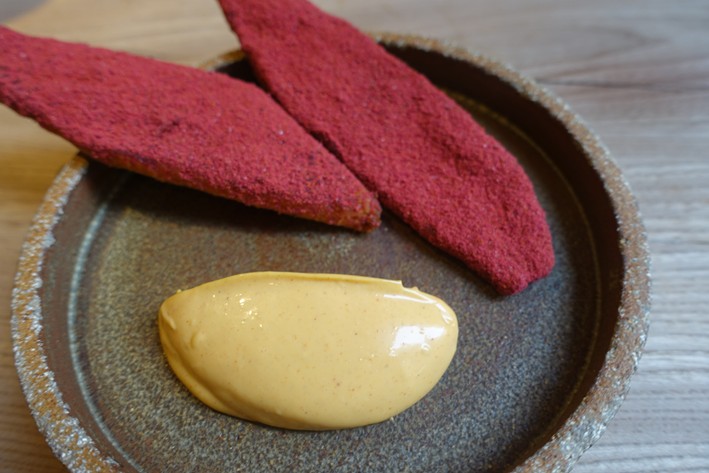
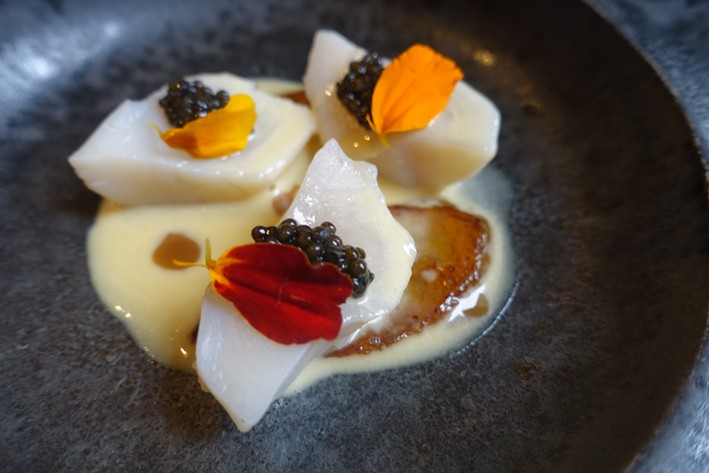
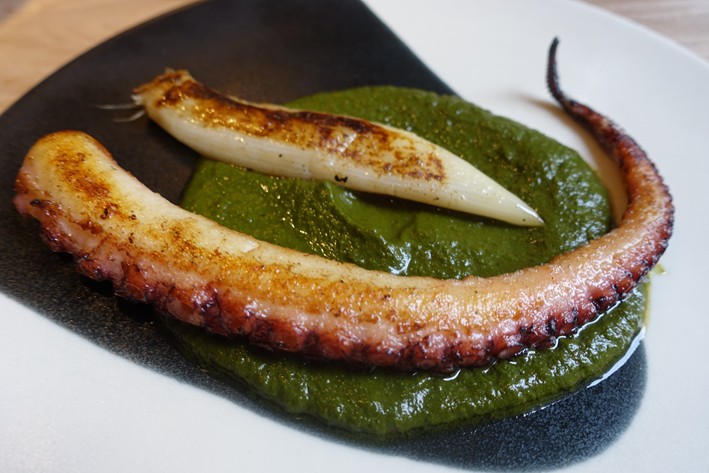
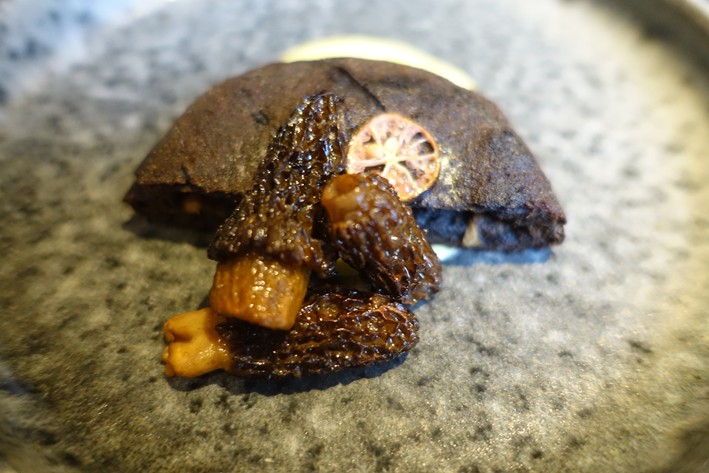
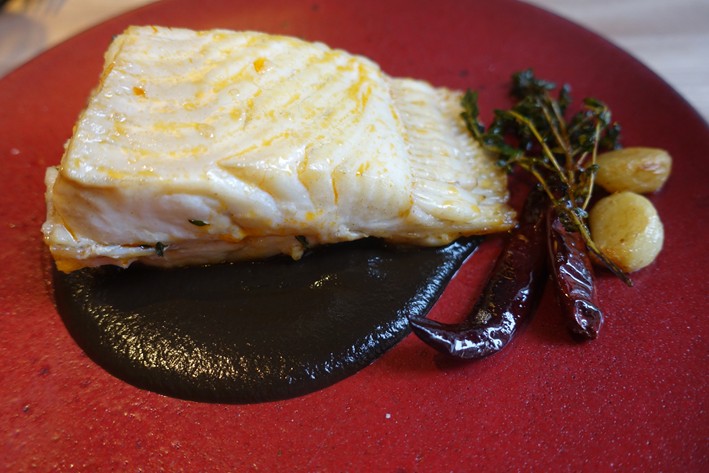
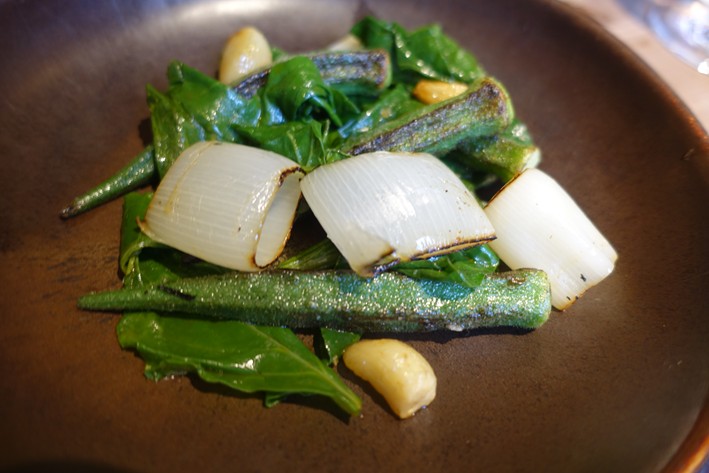
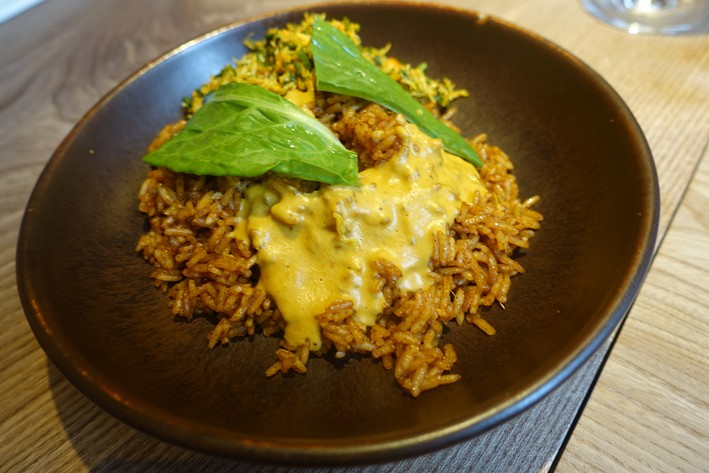
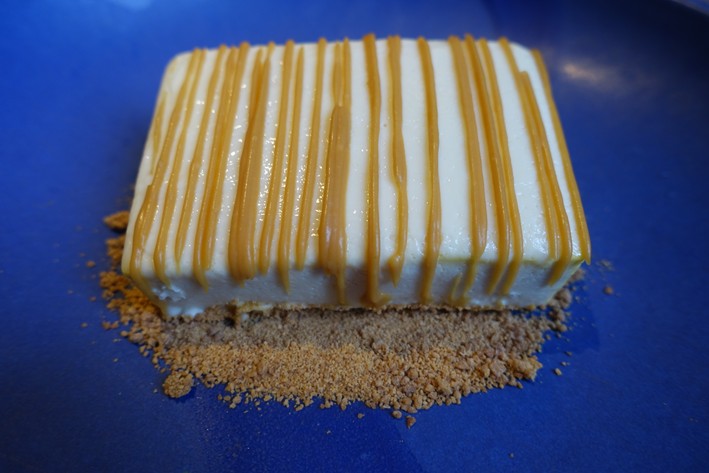
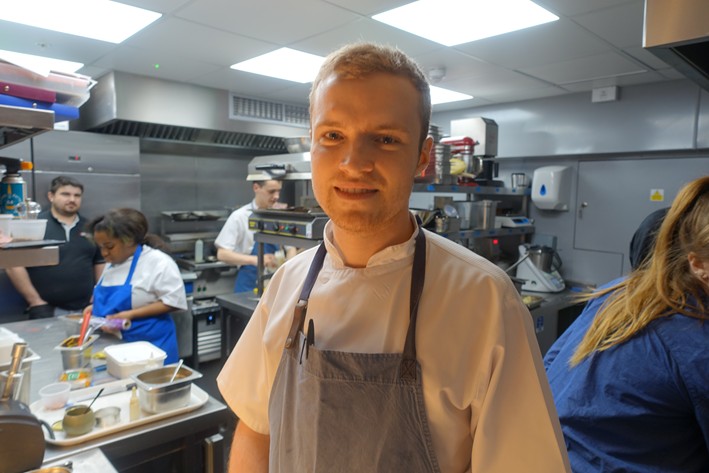

Hugh O'Sullivan
Corkage is now £75 FYI